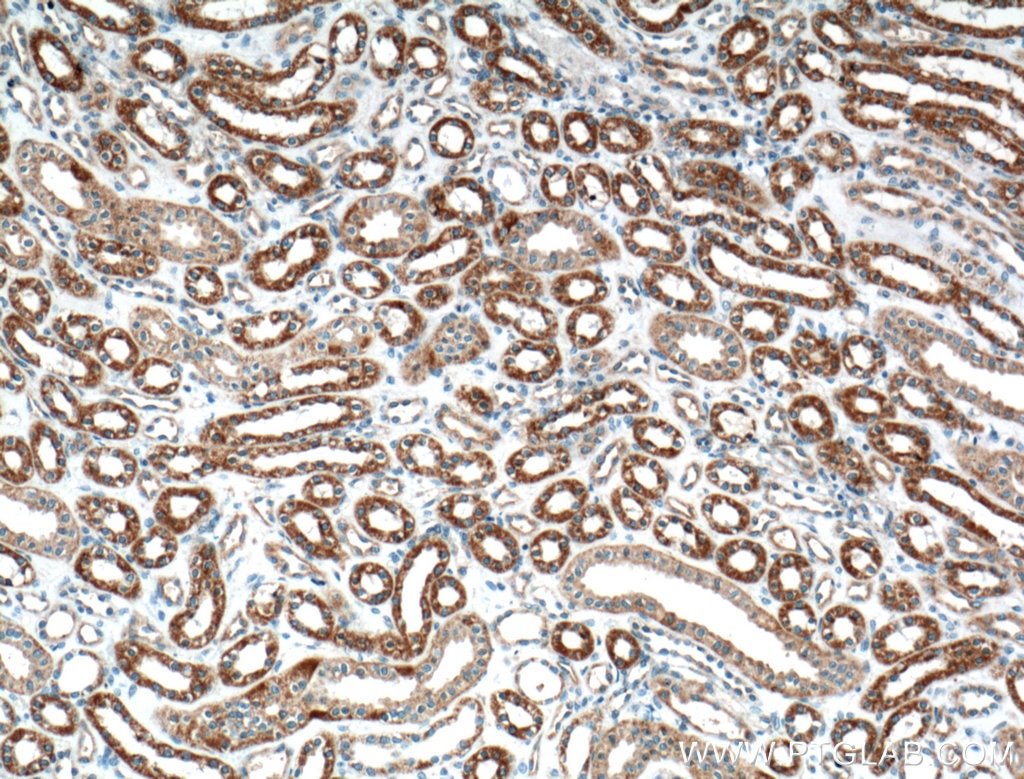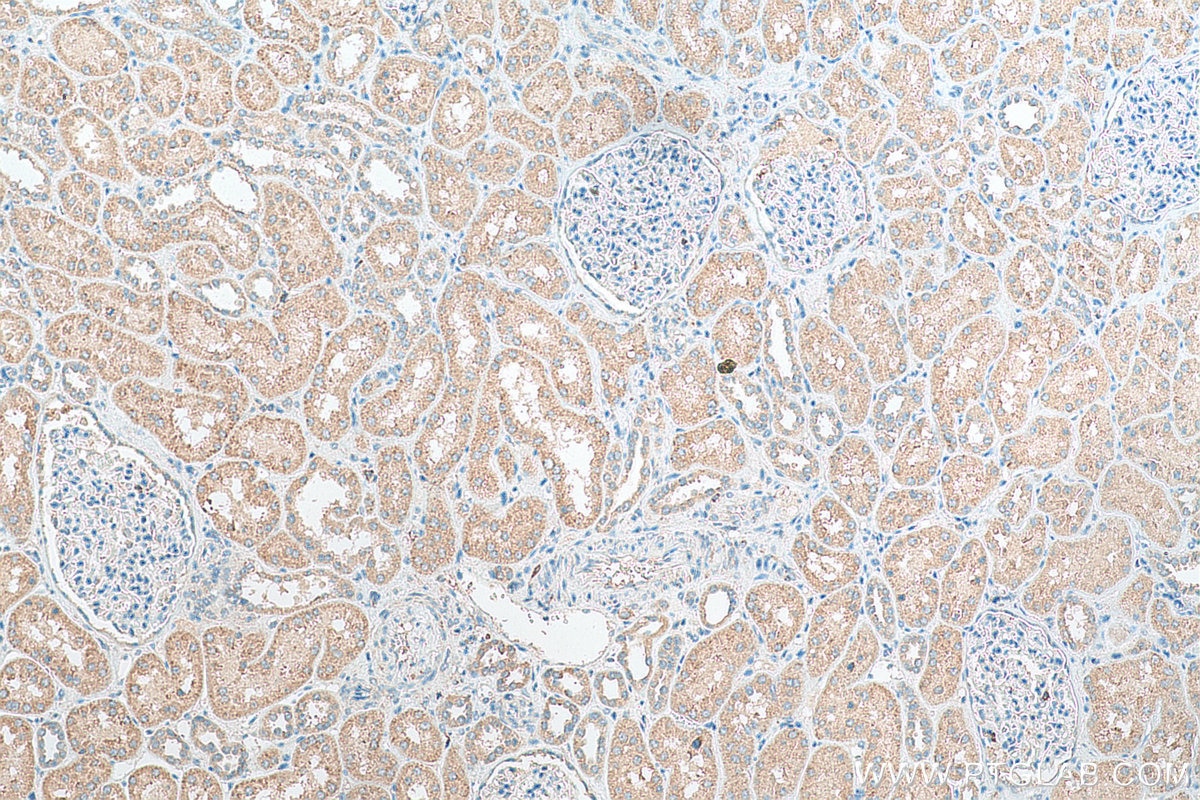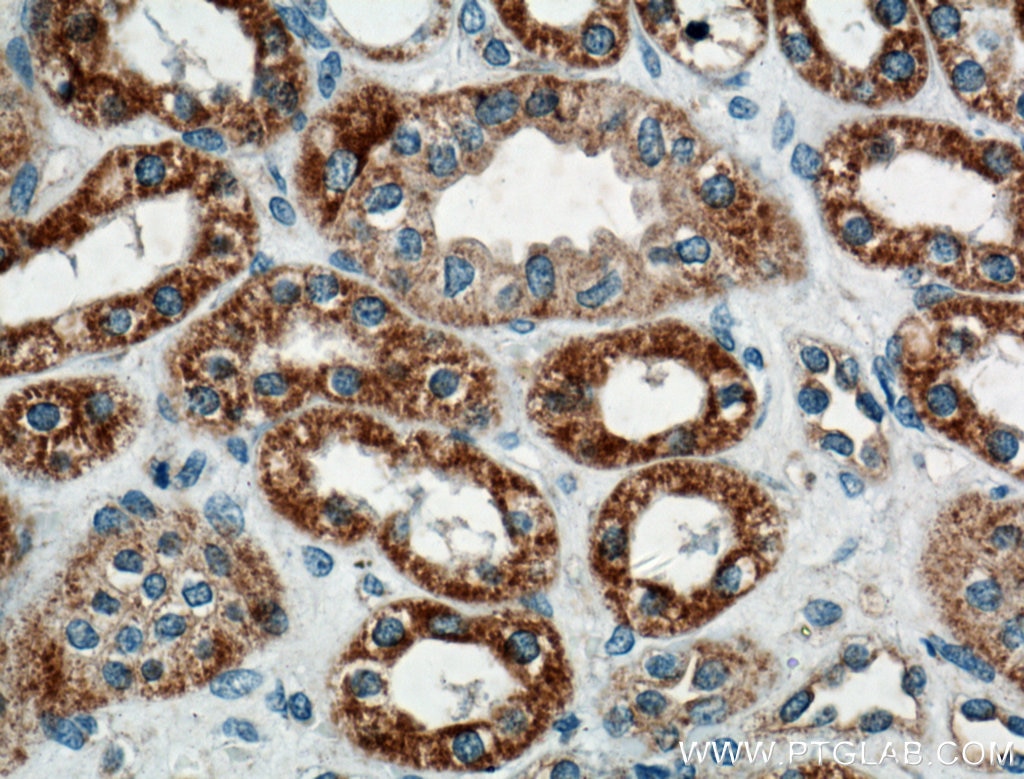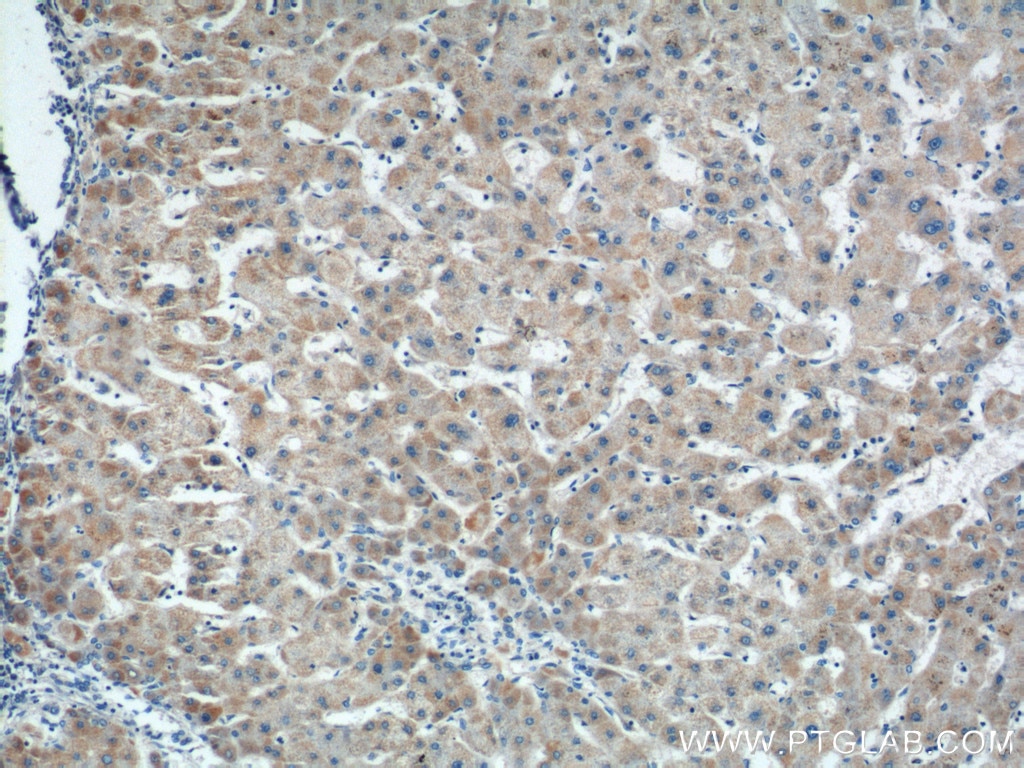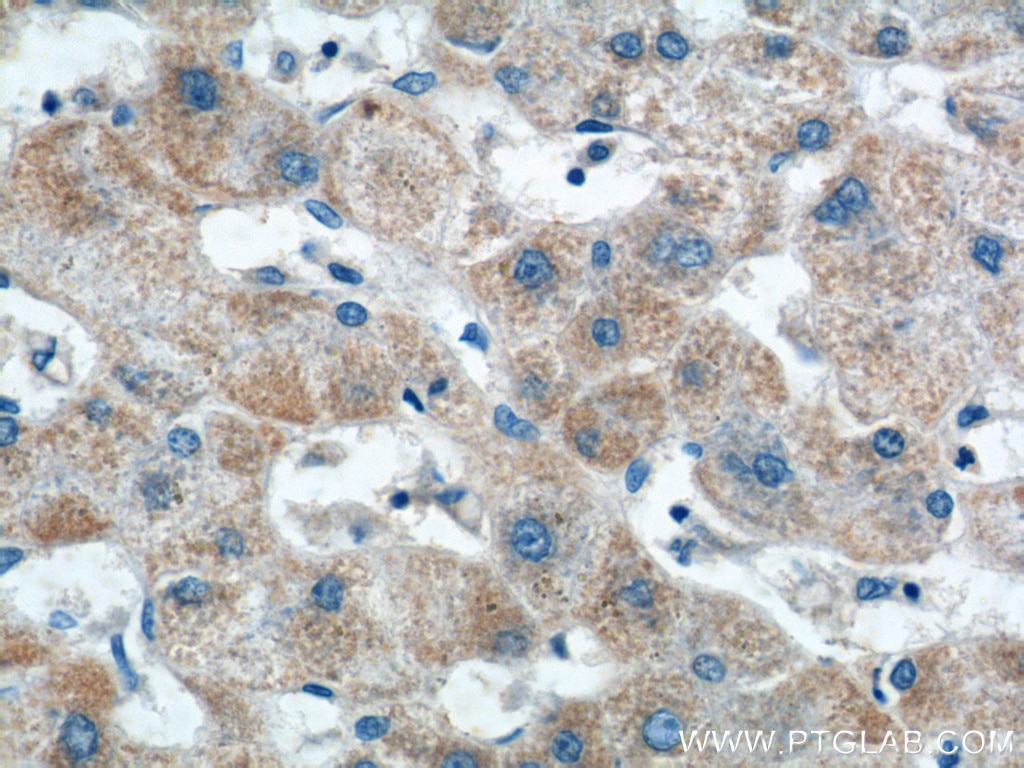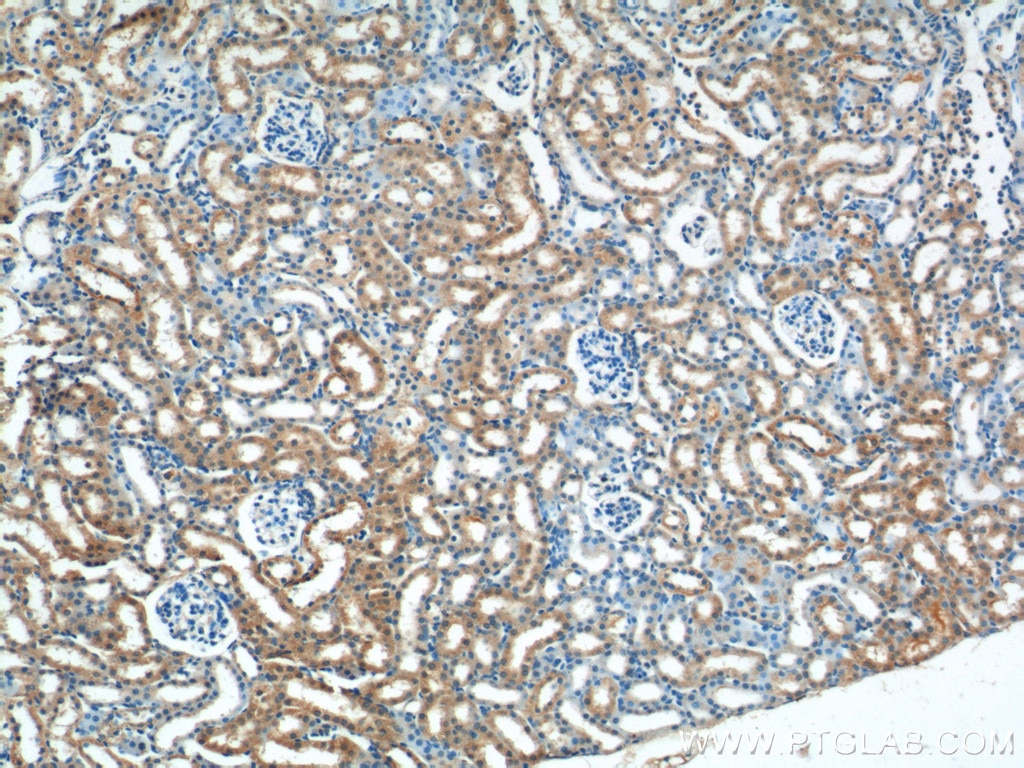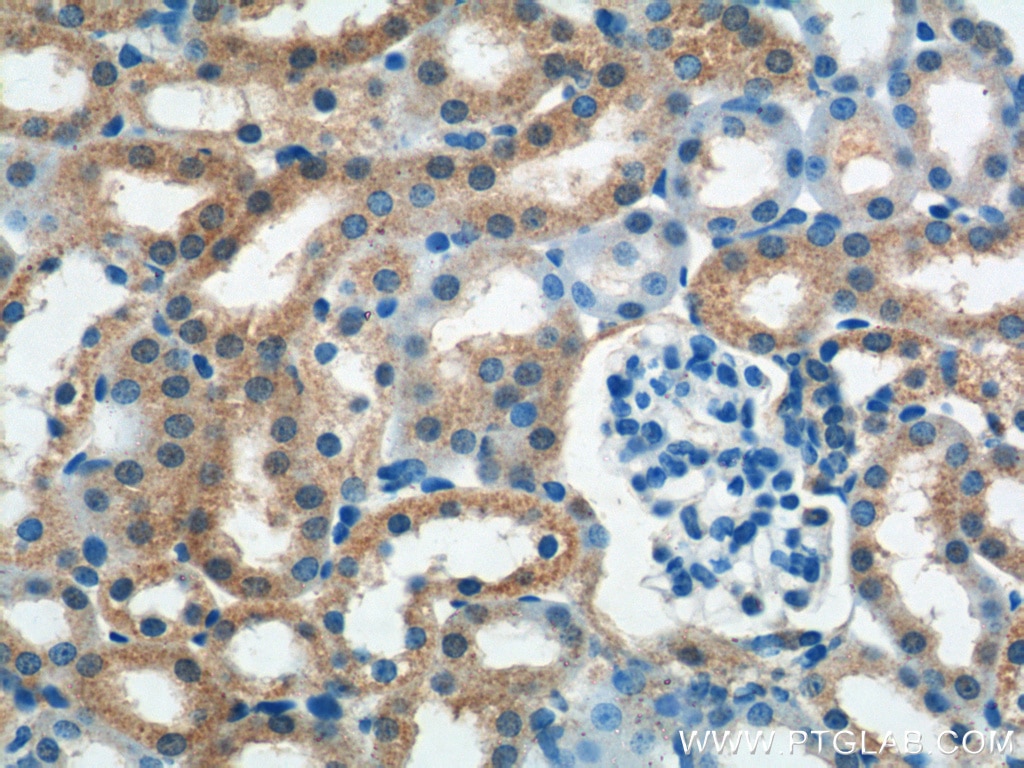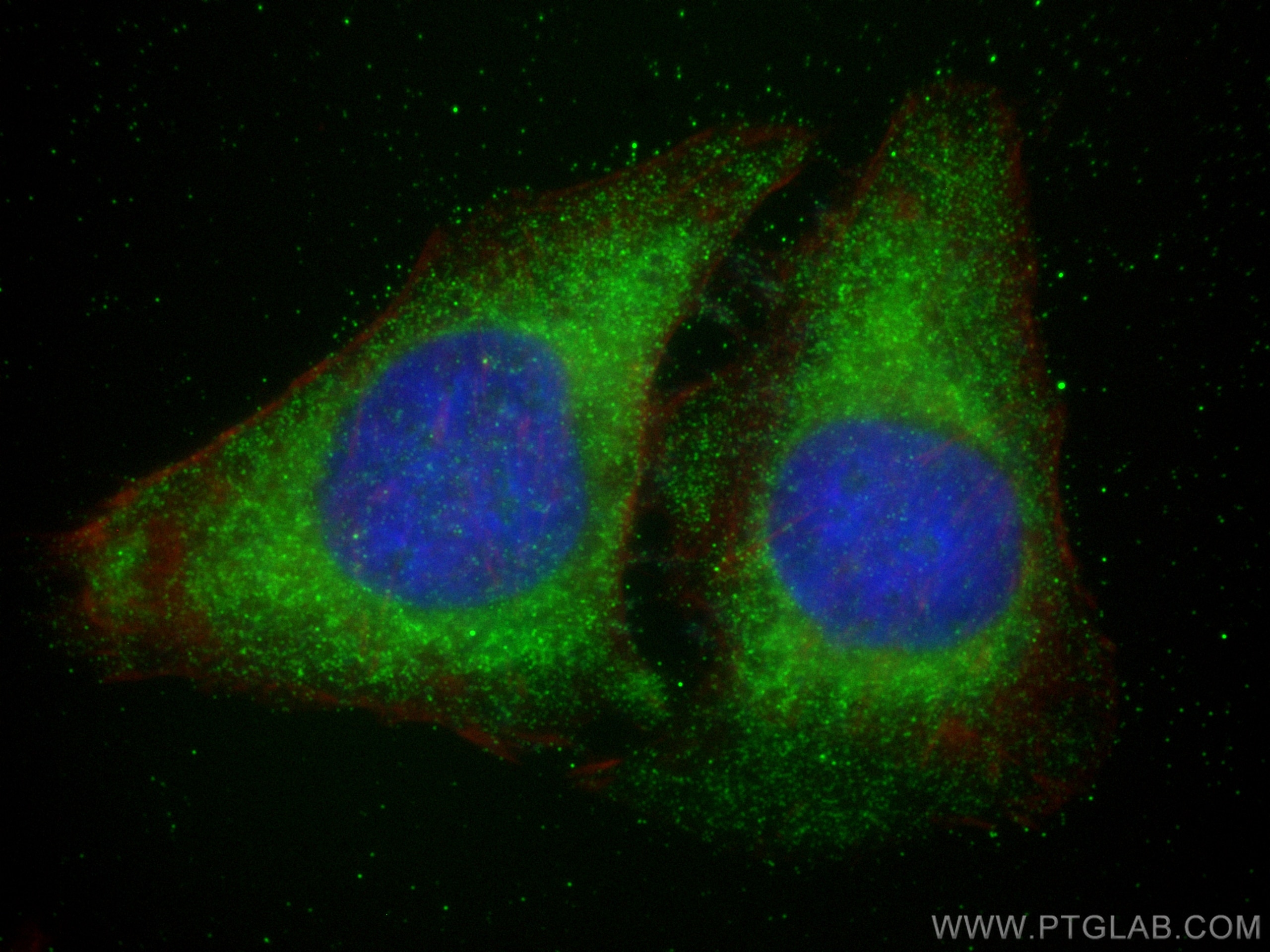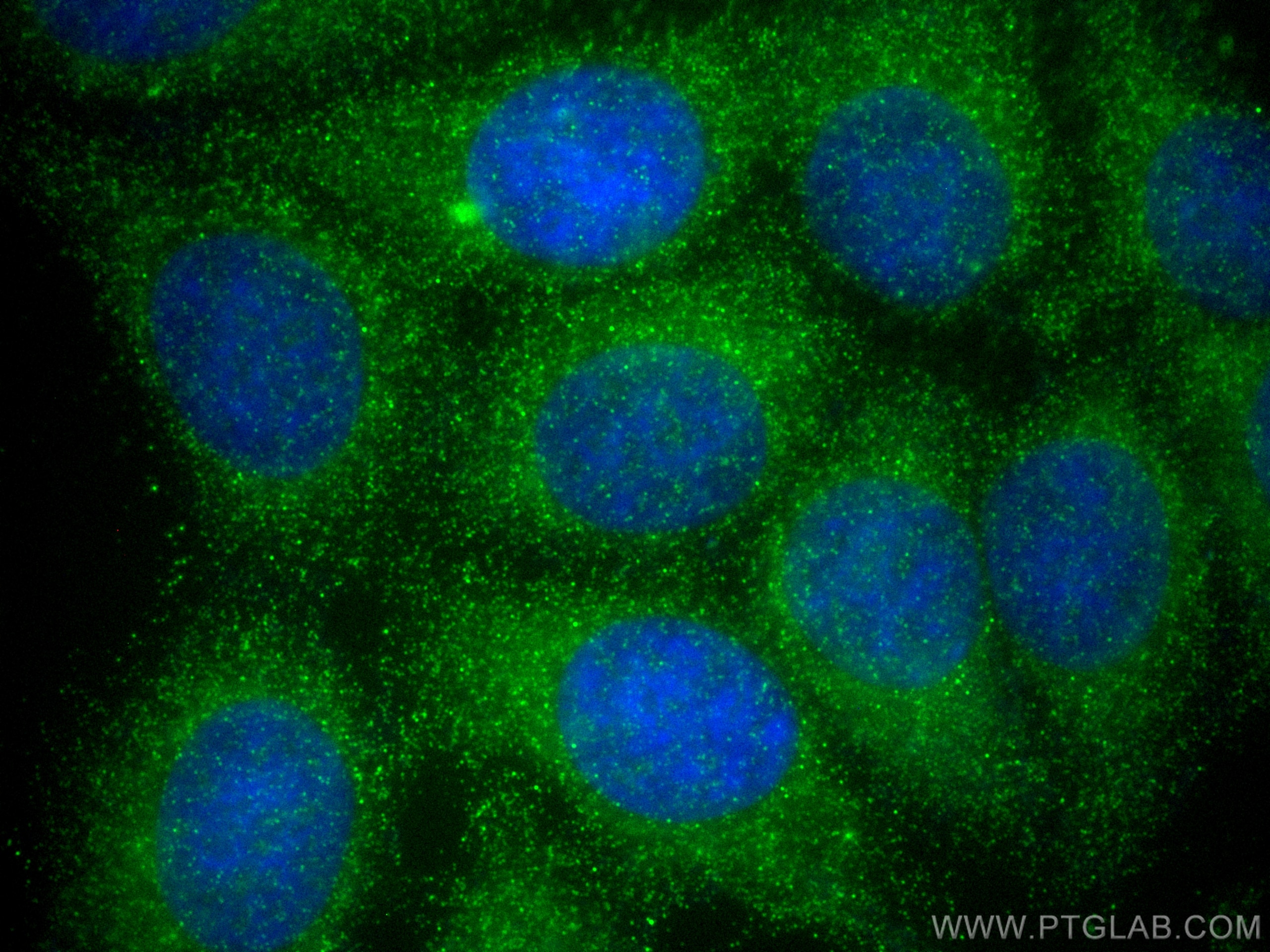Anticorps Polyclonal de lapin anti-WNT4
WNT4 Polyclonal Antibody for IHC, IF/ICC, ELISA
Hôte / Isotype
Lapin / IgG
Réactivité testée
Humain, souris et plus (1)
Applications
WB, IHC, IF/ICC, ELISA
Conjugaison
Non conjugué
N° de cat : 14371-1-AP
Synonymes
Galerie de données de validation
Applications testées
| Résultats positifs en IHC | tissu rénal humain, tissu de cirrhose hépatique humain, tissu rénal de souris il est suggéré de démasquer l'antigène avec un tampon de TE buffer pH 9.0; (*) À défaut, 'le démasquage de l'antigène peut être 'effectué avec un tampon citrate pH 6,0. |
| Résultats positifs en IF/ICC | cellules MCF-7, cellules HeLa |
Dilution recommandée
| Application | Dilution |
|---|---|
| Immunohistochimie (IHC) | IHC : 1:50-1:500 |
| Immunofluorescence (IF)/ICC | IF/ICC : 1:50-1:500 |
| It is recommended that this reagent should be titrated in each testing system to obtain optimal results. | |
| Sample-dependent, check data in validation data gallery | |
Applications publiées
| WB | See 6 publications below |
| IHC | See 5 publications below |
| IF | See 3 publications below |
Informations sur le produit
14371-1-AP cible WNT4 dans les applications de WB, IHC, IF/ICC, ELISA et montre une réactivité avec des échantillons Humain, souris
| Réactivité | Humain, souris |
| Réactivité citée | rat, Humain, souris |
| Hôte / Isotype | Lapin / IgG |
| Clonalité | Polyclonal |
| Type | Anticorps |
| Immunogène | WNT4 Protéine recombinante Ag5741 |
| Nom complet | wingless-type MMTV integration site family, member 4 |
| Masse moléculaire calculée | 39 kDa |
| Poids moléculaire observé | 39-45 kDa |
| Numéro d’acquisition GenBank | BC057781 |
| Symbole du gène | WNT4 |
| Identification du gène (NCBI) | 54361 |
| Conjugaison | Non conjugué |
| Forme | Liquide |
| Méthode de purification | Purification par affinité contre l'antigène |
| Tampon de stockage | PBS with 0.02% sodium azide and 50% glycerol |
| Conditions de stockage | Stocker à -20°C. Stable pendant un an après l'expédition. L'aliquotage n'est pas nécessaire pour le stockage à -20oC Les 20ul contiennent 0,1% de BSA. |
Informations générales
WNT4 belongs to the Wnt family. WNT4 is critical for embryonic organogenesis, but later plays a unique role among Wnt proteins in the development and maintenance of müllerian and reproductive tissues (PMID: 33963381). The mesenchymal stem cells can improve cardiac function after cardiac injury by regulating endothelial cells via the Wnt4/β-catenin signaling pathway (PMID: 20551912). WNT4 may be modified by glycosylation, leading to an increase in molecular weight.
Protocole
| Product Specific Protocols | |
|---|---|
| IHC protocol for WNT4 antibody 14371-1-AP | Download protocol |
| IF protocol for WNT4 antibody 14371-1-AP | Download protocol |
| Standard Protocols | |
|---|---|
| Click here to view our Standard Protocols |
Publications
| Species | Application | Title |
|---|---|---|
Ecotoxicol Environ Saf Prenatal Perfluorooctanoic Acid (PFOA) exposure causes reproductive toxicity by disrupting the formation of transzonal projections (TZPs) and down-regulating Wnt4/β-catenin signaling pathway in progeny | ||
Int J Clin Exp Pathol Wnt4/β-catenin signaling pathway modulates balloon-injured carotid artery restenosis via disheveled-1. | ||
Neurochem Res Wnt Signaling is Altered by Spinal Cord Neuronal Dysfunction in Amyotrophic Lateral Sclerosis Transgenic Mice. | ||
Cell Death Dis The transcription factor Sox7 modulates endocardiac cushion formation contributed to atrioventricular septal defect through Wnt4/Bmp2 signaling. | ||
BMC Complement Med Ther Extract of Corallodiscus flabellata attenuates renal fibrosis in SAMP8 mice via the Wnt/β-catenin/RAS signaling pathway. |
